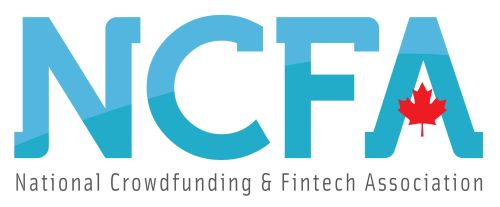Consumer-Driven Banking | April 17, 2024

 រូបភាព៖ Freepik
រូបភាព៖ Freepik2024 Budget Announces Next Steps on Canada’s Consumer-Driven Banking Framework But Lacks Clarity on Launch Date
The 2024 federal budget announcement of Canada’s Consumer-Driven Banking Framework takes another step towards implementing a ‘made in Canada’ Open Banking regime with a strong emphasis on security and consumer rights. Although the framework lacks a definitive launch date that adds a shadow of uncertainty over its practical rollout. This lack of clarity raises questions about the capacity to keep up with global digital finance initiatives with the aim of delivering timely benefits to Canadian consumers and businesses.
សូមមើល: ការមើលជាមុននៃក្របខ័ណ្ឌធនាគារបើកចំហរបស់កាណាដាឆ្នាំ 2024
Key Announcements
The key announcements made in Canada’s 2024 Consumer-Driven Banking Framework as outlined in the federal budget document include several important elements aimed at establishing and guiding the implementation of open banking in Canada:
- Legislative Timeline –> The government plans to introduce two key pieces of legislation, one in the spring and another in the fall of 2024, to lay down the regulatory and operational groundwork for open banking.
- Financial Consumer Agency of Canada (FCAC) Oversight –> The FCAC has been designated as the primary regulatory body for overseeing the open banking framework. This includes enhanced responsibilities and the establishment of a new Deputy Commissioner for Open Banking to provide managerial oversight.
- Funding Allocations –> The framework includes specific budgetary allocations for the preparatory and oversight work related to open banking:
- $1 million to the FCAC to help prepare the regulatory environment for open banking.
- $4.1 million up to 2026-2027 is being allocated to the Department of Finance (itself) for policy work on open banking. This funding is intended to support the development and refinement of policies governing the open banking ecosystem.
សូមមើល: ធនាគារបើកទូលាយ៖ បដិវត្តការចែករំលែកទិន្នន័យហិរញ្ញវត្ថុ
- A formal review of the Consumer-Driven Banking Framework is scheduled to take place three years after the initial implementation, no earlier than 2027. This review will assess the effectiveness of the framework and make necessary adjustments based on the operational experiences and emerging technological and market developments.
- សេចក្តីផ្តើមរបស់ ក structured accreditation process for financial institutions and fintech companies wishing to participate in open banking. This process aims to ensure that all entities meet stringent security and operational standards.
- Commitment to the development of a unified technical standard for data sharing across the financial sector to ensure compatibility, security, and efficiency in the exchange of consumer data between banks and third-party providers.
- The framework emphasizes the importance of robust consumer protection measures, including clear consent mechanisms, privacy safeguards, and rights to data portability. These measures are designed to empower consumers while ensuring their financial data is handled securely and responsibly.
These announcements collectively outline the Canadian government’s strategic approach to implementing a secure and consumer-focused open banking system that aligns with international best practices and addresses the specific needs of Canadian consumers and the financial services market.
Now a Few Questions and Concerns
- Implementation and oversight timeline –>"The government will review Canada’s Consumer-Driven Banking Framework after three years”. Our interpretation is that implementation will happen within 3 years, with a post-implementation review happening after 3 years. So, technically the review will happen no earlier than 2027, and there are ‘no guarantees or specific launch date’ which is concerning given the track record and could be interpreted ‘small step forward with exit ramps‘. Even proceeding in 2027 puts Canada ten years behind Great Britain and eight years behind Australia and four behind the U.S. Not great for consumers; not great for small businesses.
- The framework includes a formal accreditation process for entities wishing to participate. This is crucial for ensuring that only qualified entities handle sensitive financial data. However, the rigidity and complexity of this process could potentially limit the number and diversity of participants, especially smaller fintechs that may not have the resources to meet stringent requirements. This could stifle innovation compared to more flexible systems in other countries.
សូមមើល: Open Banking Insights: Decoding Canada’s Financial Future
- នេះ expansion of the Financial Consumer Agency of Canada’s (FCAC) mandate to include oversight of consumer-driven banking adds an additional layer of regulatory scrutiny. While this enhances consumer protection, it also introduces more bureaucracy and complexity given the scope and demands, which could slow down the pace of innovation and adaptation within the sector, especially when compared to regions with less stringent oversight.
- The framework grants significant powers to the Minister of Finance, including the ability to refuse, suspend, or revoke access to the framework for national security-related reasons. Not a bad idea but this broad authority could be seen as introducing a level of political influence or discretion that might not be as pronounced in other jurisdictions. It could raise concerns about transparency and fairness in how these powers are exercised.
- The decision to use a single technical standard for data sharing is intended to promote security and interoperability. However, this approach can also be seen as restrictive, potentially limiting the framework’s ability to adapt to new technologies or integrate with systems that might use different standards. This contrasts with more flexible approaches seen in other countries that may allow for multiple standards or more adaptive technical frameworks.
- នៅក្រោម PSD2 (Payment Services Directive 2), the EU does not mandate a single data sharing standard across all member states. Instead, it sets the regulatory framework and allows different technical standards to develop. This has led to a variety of API (Application Programming Interface) standards emerging, such as the Berlin Group’s NextGenPSD2 framework, STET, and others used by different banking groups across the continent.
- នេះ US does not have a formal regulatory framework for open banking mandated by the government but is working on it: Open Banking Regulation in the U.S. Strikes a Chord. Instead, data sharing standards are largely driven by market forces and agreements between individual banks and fintech companies. This has resulted in a diversity of data sharing standards and protocols, including those developed by financial data aggregators and fintechs under frameworks like the Financial Data Exchange (FDX) and the earlier Open Financial Exchange (OFX).
- បើទោះបីជា UK initially implemented a single standard for open banking under the Competition and Markets Authority (CMA) order, it has seen broader data sharing initiatives that are not strictly limited to the open banking APIs. These include broader financial data sharing under frameworks like Open Finance, which contemplate a wider range of financial products and services beyond just banking.
- ខណៈពេលដែល Consumer Data Right (CDR) in Australia started with open banking and has a primary standard, it is designed to be extended to other sectors (like energy and telecommunications) and allows for the development and endorsement of additional standards over time as the system evolves and as new sectors are brought under the CDR regime.
ទស្សនវិស័យ
Ultimately, while the framework for Consumer-Driven Banking in Canada lays a solid foundation for enhanced consumer protection and streamlined financial data sharing, its real success will hinge on the execution speed and adaptability of its policies. The framework’s potential risks and slow implementation could impede progress, leaving Canada trailing behind its international peers in financial innovation. Moving forward, it will be crucial for policymakers to refine and expedite the framework’s application, ensuring that it not only matches global standards but also actively promotes a competitive and innovative financial environment.
ស្វែងយល់បន្ថែមពីស៊េរីភាពជាអ្នកដឹកនាំការគិតរបស់ NCFA Canada ដែលមានចំណងជើងថា “ដំណើរបើកធនាគាររបស់កាណាដា”
ការសម្ភាសន៍អ្នកជំនាញ និងការយល់ដឹងផ្តោតលើការបង្កើតរបបធនាគារបើកចំហដែលផលិតក្នុងប្រទេសកាណាដា។ ស៊េរីនេះមានគោលបំណងរួមចំណែកដល់ការបង្កើតប្រព័ន្ធដែលនឹងផ្លាស់ប្តូរយ៉ាងសំខាន់ពីរបៀបដែលសេវាកម្មហិរញ្ញវត្ថុត្រូវបានបង្កើត ចែកចាយ និងប្រើប្រាស់នៅក្នុងប្រទេសកាណាដាក្នុងរយៈពេលប៉ុន្មានទសវត្សរ៍ខាងមុខនេះ។

ជ្រើសរើសភាគ
1. មូលដ្ឋានគ្រឹះនៃធនាគារបើកចំហ
ថ្ងៃទី 15 ខែកក្កដា ឆ្នាំ 2021៖ បទសម្ភាសន៍ជាមួយលោក Simon Redfern ស្ថាបនិកធនាគារបើកចំហ (ប្រទេសអាល្លឺម៉ង់)
ភាគ៖ ស្វែងរកប្រភពដើម និងផលប៉ះពាល់នៃស្តង់ដារធនាគារបើកចំហជាសកលជាមួយ Simon Redfern ។ ស្វែងយល់ពីរបៀបដែលក្របខ័ណ្ឌទាំងនេះអាចជំរុញការច្នៃប្រឌិត និងតម្លាភាពក្នុងសេវាកម្មហិរញ្ញវត្ថុ។ ច្រើនទៀត
2. ទស្សនៈរបស់ធនាគារពិភពលោក
ថ្ងៃទី 20 ខែកញ្ញា ឆ្នាំ 2021៖ បទសម្ភាសន៍ជាមួយ Carmela Gomez Castelao និង Jose Luis Navarro Llorens, BBVA (អេស្ប៉ាញ)
ភាគ៖ ស្វែងយល់ពីវិធីសាស្រ្តយុទ្ធសាស្ត្ររបស់ BBVA ក្នុងការបើកធនាគារនៅទូទាំងប្រតិបត្តិការជាសាកលរបស់ខ្លួន ដោយគូសបញ្ជាក់ពីតុល្យភាពរវាងការច្នៃប្រឌិត និងសុវត្ថិភាពអតិថិជន។ ច្រើនទៀត
3. ប្រព័ន្ធអេកូឡូស៊ី API
ថ្ងៃទី 1 ខែធ្នូ ឆ្នាំ 2021៖ បទសម្ភាសន៍ជាមួយ Huw Davies, Ozone API (UK)
ភាគ៖ Huw Davies ពន្យល់ពីសារៈសំខាន់នៃស្តង់ដារ API ដ៏រឹងមាំសម្រាប់ការជំរុញប្រព័ន្ធធនាគារបើកចំហប្រកបដោយសុវត្ថិភាព និងអន្តរប្រតិបត្តិការ។ ច្រើនទៀត
4. ដំណោះស្រាយហិរញ្ញវត្ថុអតិថិជនជាកណ្តាល
ថ្ងៃទី 15 ខែមករា ឆ្នាំ 2022៖ បទសម្ភាសន៍ជាមួយ Søren Nielsen, Subaio (ដាណឺម៉ាក)
ភាគ៖ Søren Nielsen ចែករំលែកពីរបៀបដែល Danish Fintech Subaio ផ្តោតលើការពង្រឹងអ្នកប្រើប្រាស់តាមរយៈធនាគារបើកចំហ បង្កើនឧបករណ៍គ្រប់គ្រងហិរញ្ញវត្ថុ។ ច្រើនទៀត
5. សមាហរណកម្ម Fintech និងការច្នៃប្រឌិត
ថ្ងៃទី 22 ខែមីនា ឆ្នាំ 2022៖ បទសម្ភាសន៍ជាមួយ Abe Karar, Fintech Galaxy (UAE)
ភាគ៖ ស្វែងយល់ពីសមាហរណកម្មនៃធនាគារបើកចំហជាមួយនឹងប្រព័ន្ធអេកូឡូស៊ី fintech ដោយរំលេចការច្នៃប្រឌិត និងការអភិវឌ្ឍន៍ផលិតផលថ្មី។ ច្រើនទៀត

 នេះ សមាគមជាតិហ្វុលឌីភីងឌីងនិងហ្វតតេច (NCFA Canada) គឺជាប្រព័ន្ធអេកូឡូស៊ីនវានុវត្តន៍ហិរញ្ញវត្ថុដែលផ្តល់ការអប់រំ ភាពវៃឆ្លាតទីផ្សារ ការគ្រប់គ្រងឧស្សាហកម្ម បណ្តាញ និងការផ្តល់មូលនិធិ និងសេវាកម្មដល់សមាជិកសហគមន៍រាប់ពាន់នាក់ ហើយធ្វើការយ៉ាងជិតស្និទ្ធជាមួយឧស្សាហកម្ម រដ្ឋាភិបាល ដៃគូ និងសាខាដើម្បីបង្កើត fintech និងការផ្តល់មូលនិធិដ៏រស់រវើក និងច្នៃប្រឌិត។ ឧស្សាហកម្មនៅកាណាដា។ វិមជ្ឈការ និងចែកចាយ NCFA ត្រូវបានចូលរួមជាមួយអ្នកពាក់ព័ន្ធទូទាំងពិភពលោក និងជួយបង្កើតគម្រោង និងការវិនិយោគនៅក្នុង fintech ហិរញ្ញវត្ថុជំនួស ការផ្តល់មូលនិធិហ្វូងមនុស្ស ហិរញ្ញវត្ថុពីមិត្តភ័ក្តិ ការទូទាត់ ទ្រព្យសម្បត្តិឌីជីថល និងសញ្ញាសម្ងាត់ បញ្ញាសិប្បនិម្មិត blockchain រូបិយប័ណ្ណគ្រីបតូ regtech និងផ្នែក insurtech . ចូលរួម សហគមន៍ Fintech និងមូលនិធិរបស់កាណាដានៅថ្ងៃនេះឥតគិតថ្លៃ! ឬក្លាយជា សមាជិកចូលរួម និងទទួលបានរង្វាន់។ សម្រាប់ព័ត៌មានបន្ថែមសូមទស្សនា៖ www.ncfacanada.org
នេះ សមាគមជាតិហ្វុលឌីភីងឌីងនិងហ្វតតេច (NCFA Canada) គឺជាប្រព័ន្ធអេកូឡូស៊ីនវានុវត្តន៍ហិរញ្ញវត្ថុដែលផ្តល់ការអប់រំ ភាពវៃឆ្លាតទីផ្សារ ការគ្រប់គ្រងឧស្សាហកម្ម បណ្តាញ និងការផ្តល់មូលនិធិ និងសេវាកម្មដល់សមាជិកសហគមន៍រាប់ពាន់នាក់ ហើយធ្វើការយ៉ាងជិតស្និទ្ធជាមួយឧស្សាហកម្ម រដ្ឋាភិបាល ដៃគូ និងសាខាដើម្បីបង្កើត fintech និងការផ្តល់មូលនិធិដ៏រស់រវើក និងច្នៃប្រឌិត។ ឧស្សាហកម្មនៅកាណាដា។ វិមជ្ឈការ និងចែកចាយ NCFA ត្រូវបានចូលរួមជាមួយអ្នកពាក់ព័ន្ធទូទាំងពិភពលោក និងជួយបង្កើតគម្រោង និងការវិនិយោគនៅក្នុង fintech ហិរញ្ញវត្ថុជំនួស ការផ្តល់មូលនិធិហ្វូងមនុស្ស ហិរញ្ញវត្ថុពីមិត្តភ័ក្តិ ការទូទាត់ ទ្រព្យសម្បត្តិឌីជីថល និងសញ្ញាសម្ងាត់ បញ្ញាសិប្បនិម្មិត blockchain រូបិយប័ណ្ណគ្រីបតូ regtech និងផ្នែក insurtech . ចូលរួម សហគមន៍ Fintech និងមូលនិធិរបស់កាណាដានៅថ្ងៃនេះឥតគិតថ្លៃ! ឬក្លាយជា សមាជិកចូលរួម និងទទួលបានរង្វាន់។ សម្រាប់ព័ត៌មានបន្ថែមសូមទស្សនា៖ www.ncfacanada.org
ប្រកាសដែលទាក់ទងនឹង
- SEO ដែលដំណើរការដោយមាតិកា និងការចែកចាយ PR ។ ទទួលបានការពង្រីកថ្ងៃនេះ។
- PlatoData.Network Vertical Generative Ai. ផ្តល់អំណាចដល់ខ្លួនអ្នក។ ចូលប្រើទីនេះ។
- PlatoAiStream Web3 Intelligence ។ ចំណេះដឹងត្រូវបានពង្រីក។ ចូលប្រើទីនេះ។
- ផ្លាតូអេសជី។ កាបូន CleanTech, ថាមពល, បរិស្ថាន, ពន្លឺព្រះអាទិត្យ ការគ្រប់គ្រងកាកសំណល់។ ចូលប្រើទីនេះ។
- ផ្លាតូសុខភាព។ ជីវបច្ចេកវិទ្យា និង ភាពវៃឆ្លាត សាកល្បងគ្លីនិក។ ចូលប្រើទីនេះ។
- ប្រភព: https://ncfacanada.org/small-step-forward-as-feds-publish-straw-man-open-banking-framework/



